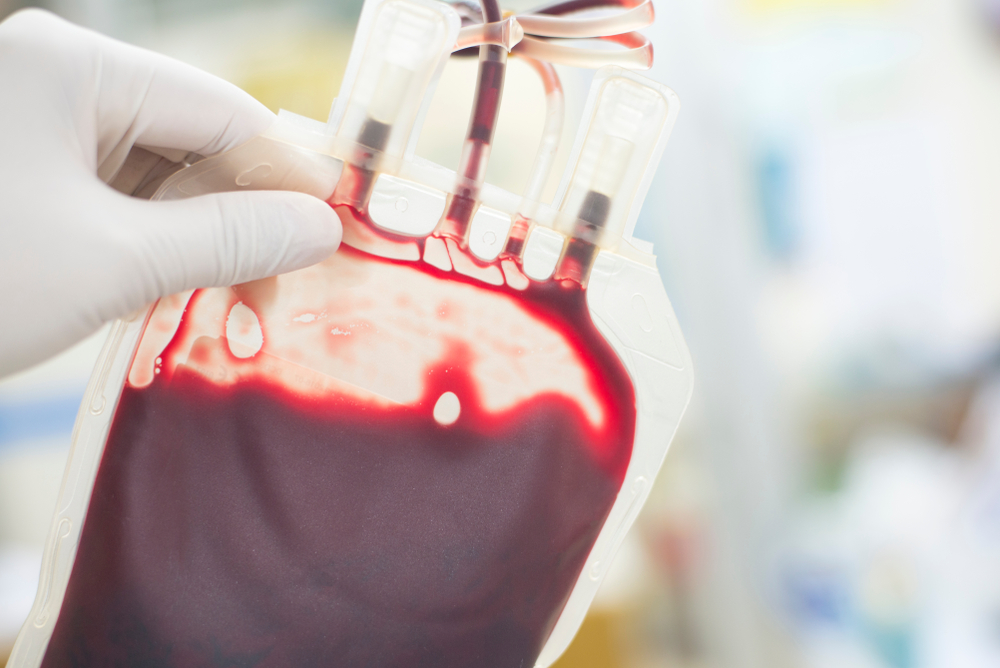Navigating the Intricacies of Blood Types
Blood types play a crucial role in medicine, yet many remain unaware of the significance behind each classification. With a rich history and vital medical implications, understanding blood groups becomes essential for everyone, not just healthcare professionals.
The Significance of Blood Groups
Every human being has a distinct blood type, which is defined by specific antigens and antibodies found on the surface of their red blood cells and in their plasma. These blood groups are not just random classifications; they are deeply rooted in our genetic heritage and are the result of evolutionary changes and environmental adaptations over millennia.
The most well-known system of blood typing is the ABO system, which classifies blood into one of four main types: A, B, AB, or O. Another vital system is the Rh factor, which can be either positive or negative. These two systems are crucial determinants in blood transfusion compatibility2. Transfusing incompatible blood can cause severe, even fatal, reactions. This makes understanding and accurately determining blood groups paramount in medical practices, especially in emergencies.
In addition to their role in transfusions, certain blood types have been linked to increased or decreased susceptibilities to particular diseases. For instance, some research suggests that individuals with Type O might have a lower risk of certain diseases compared to individuals with other blood types. On the contrary, some types might have an increased risk for other conditions.
Moreover, beyond medical implications, blood groups have fascinated researchers in fields as diverse as anthropology, where they offer clues about human migrations and historical intergroup interactions.
The Origins: A, B, AB, and O
Karl Landsteiner (1868-1943) was an Austrian immunologist and pathologist. In 1901, he discovered that blood transfusions between certain individuals led to the clumping and destruction of blood cells.
This observation was due to differences in blood type. He identified the three main types (A, B, and O) in 1901, and then, in collaboration with Alexander S. Wiener, identified the Rhesus factor in 1937. His pioneering work paved the way for safer blood transfusions, and he was awarded the Nobel Prize in Physiology or Medicine in 1930 for his discovery.
The Significance of Antigens and Antibodies
Blood type is determined by specific proteins, or antigens, on the surface of red blood cells, and antibodies present in the plasma.
Type A
Contains A antigens and anti-B antibodies. If someone gives type B blood to a person with type A blood, their anti-B antibodies will attack the B antigens, causing a dangerous reaction.
Type B
Has B antigens and anti-A antibodies.
Type AB
Contains both A and B antigens but lacks both A and B antibodies, which makes them a universal recipient. This means they can receive blood from any blood type without experiencing an adverse reaction.
Type O
Has no A or B antigens, but has both A and B antibodies. This makes them the universal donor, as their blood can be given to individuals of any blood type. However, they can only receive blood from other type O individuals.
The Rh Factor: Positive or Negative
Beyond the primary classifications, the Rh factor, either positive or negative, further refines blood types. This Rh factor pertains to another antigen on the red blood cell surface and is especially crucial during pregnancy, as an Rh-negative mother and an Rh-positive baby could face complications.
The presence (positive) or absence (negative) of the Rh factor (D antigen) further classifies each blood type. For example, you can be A+ (A positive, meaning you have the Rh factor) or A- (A negative, meaning you lack the Rh factor).
The Medical Implications
Understanding one’s blood type isn’t just about ensuring a successful blood transfusion. Recent research suggests blood types might influence susceptibility to certain diseases. For instance, Type O individuals might have a lower risk of heart disease but could be more susceptible to stomach ulcers.
Unveiling the Future
With advancing technology and research, the knowledge we have continues to expand. Personalised medicine, leveraging one’s genetic information, might see blood types playing an even more prominent role in determining disease susceptibility or medication efficacy.
As we delve deeper into the realm of genetics and personalised medicine, our blood types might hold secrets yet undiscovered. Ensuring we remain informed not only benefits our personal health but adds a layer of understanding to the vast mosaic of human biology.
References
- Molecular genetic basis of the histo-blood group ABO system – PubMed. (1990, May 17). PubMed. https://doi.org/10.1038/345229a0
- The relationship between blood groups and disease – PubMed. (2010, June 10). PubMed. https://doi.org/10.1182/blood-2010-01-261859
- The History and Geography of Human Genes. (n.d.). The History and Geography of Human Genes | Princeton University Press. https://press.princeton.edu/books/paperback/9780691029054/the-history-and-geography-of-human-genes
- Daniels, G. (2002). Human blood groups. Wiley-Blackwell.













